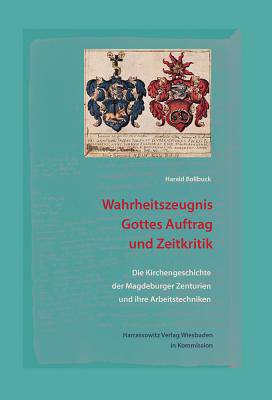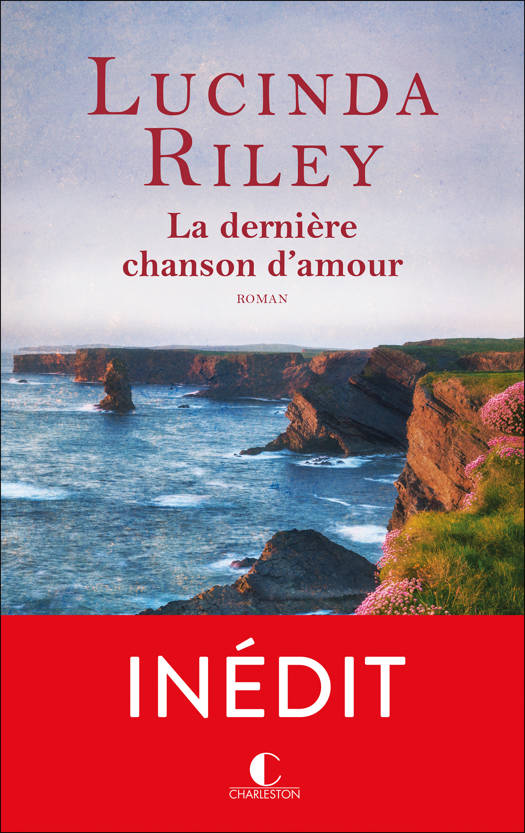
- Retrait en 2 heures
- Assortiment impressionnant
- Paiement sécurisé
- Toujours un magasin près de chez vous
- Retrait gratuit dans votre magasin Club
- 7.000.0000 titres dans notre catalogue
- Payer en toute sécurité
- Toujours un magasin près de chez vous
Wahrheitszeugnis, Gottes Auftrag Und Zeitkritik
Die Kirchengeschichte Der Magdeburger Zenturien Und Ihre Arbeitstechniken
Harald Bollbuck
Livre relié | Allemand
184,95 €
+ 369 points
Description
English summary: Church history during the 16th century Reformation was a heavily contested field upon which the interpretation and protection of each confession was negotiated. The Magdeburg "Centuriators" was the first attempt by a group of Lutheran theologians and scholars to completely record the history of the development of doctrines from the time of the original church to the present. The focus of the accounts was the dogmatic beliefs of their own confessional groups, whose eternal truths history should prove. The Centuriators did not aim at just the papacy, but also one the dissident current within the Lutheran camp. The project required a European-wide network of scholars and patrons in order to bring together the scattered sources and to finance the work in teams. The selection of sources and their value were invariably subject to confessional and political motives. At the same time, the Centuriators also developed new forms of critical, historical writing on the basis of manuscript sources and developed basic methods of paleography, diplomatics, and codicology. In his study, Harald Bollbuck investigates the formation of the Centuriators on the basis of a confessionally radical, apocalyptic and hierarchical thought. He reconstructs the development of the working group and the widely diffused, learned networks and incorporates the method of delegation and the working techniques of the Centuriators within contemporary discussions. German description: Kirchengeschichte war im Reformationsjahrhundert ein heftig umkampfter Schauplatz, auf dem die Deutung und die Absicherung der eigenen Konfession ausgehandelt wurden. Die Magdeburger Zenturien waren der erste Versuch einer Gruppe lutherischer Theologen und Gelehrter, die Geschichte der Lehrentwicklungen von den Zeiten der Urkirche bis zur Gegenwart vollstandig festzuhalten. Mittelpunkt der Darstellung waren die dogmatischen Vorstellungen der eigenen Konfessionsgruppe, deren ewige Wahrheit die Geschichte nachweisen sollte. Die Zenturien zielten nicht nur auf die Papstkirche, sondern auch auf abweichende Stromungen im lutherischen Lager. Es wurde ein europaweites Netzwerk von Gelehrten und Mazenen aufgebaut, um die weitverstreuten Quellen zusammenzutragen und die Arbeit im Team zu finanzieren. Dabei unterlagen die Auswahl der Quellen und ihre Auswertung stets konfessionellen und politischen Intentionen. Zugleich erschlossen die Zenturien aber auch neue Formen kritischer Geschichtsschreibung auf der Grundlage oftmals handschriftlicher Quellen und entwickelten Ansatze von Palaografie, Diplomatik und Kodikologie. Harald Bollbuck untersucht in seiner Studie die Entstehung der Zenturien auf der Basis eines konfessionell radikalen, apokalyptischen und obrigkeitskritischen Denkens. Er rekonstruiert den Aufbau der Arbeitsgruppe und des weitverzweigten, gelehrten Netzwerks und ordnet Methodik und Arbeitstechniken der Zenturien in die zeitgenossische Diskussion ein.
Spécifications
Parties prenantes
- Auteur(s) :
- Editeur:
Contenu
- Nombre de pages :
- 824
- Langue:
- Allemand
Caractéristiques
- EAN:
- 9783447102506
- Date de parution :
- 01-12-14
- Format:
- Livre relié
- Format numérique:
- Genaaid
- Poids :
- 1954 g

Seulement chez Librairie Club
+ 369 points sur votre carte client de Librairie Club
Les avis
Nous publions uniquement les avis qui respectent les conditions requises. Consultez nos conditions pour les avis.







